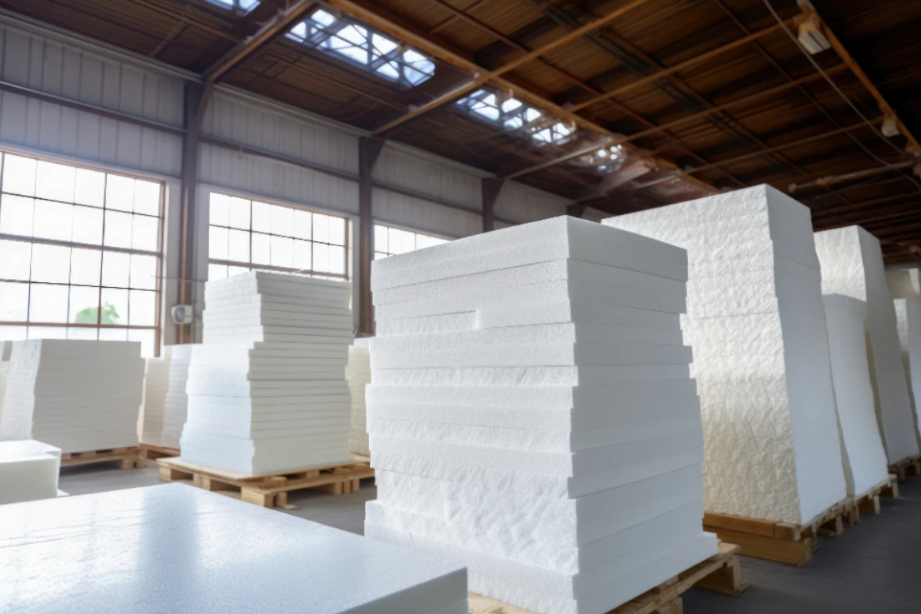Introduction
In today’s fast-paced world, where industries demand materials that are efficient, sustainable, and cost-effective, expanded polystyrene blocks have emerged as a versatile solution. Commonly referred to as polystyrene blocks, these lightweight foam materials offer a wide range of applications from protective packaging to insulation in construction. This article delves into the unique properties, benefits, and environmental considerations of expanded polystyrene blocks, highlighting why they continue to be a top choice across various sectors.
What Are Expanded Polystyrene Blocks?
Expanded Polystyrene (EPS) blocks are foam-based materials composed primarily of 98% air trapped within a polymer matrix. This cellular structure makes EPS exceptionally lightweight, durable, and thermally efficient. At their core, polystyrene blocks are made from a chemically inert plastic that is non-toxic, non-irritant, and rot-proof, making them safe and practical for many industrial and commercial uses.
Key Characteristics of Expanded Polystyrene Blocks
- Lightweight Composition: Due to their high air content, these blocks are significantly lighter than many traditional packaging and insulation materials.
- Thermal Insulation: EPS blocks provide excellent resistance to heat transfer, which makes them ideal for insulating walls, floors, and roofs.
- Chemical Inertness: Being chemically stable and inert, polystyrene blocks do not react with most substances, which preserves product integrity in packaging and protects building materials.
- Moisture Resistance: With minimal water absorption and permeability, expanded polystyrene blocks resist mold and mildew, extending the lifespan of the materials and goods they protect.
- Easy to Shape and Cut: EPS blocks can be easily sculpted or cut to custom sizes, enabling tailored solutions for complex designs or packaging requirements.
- Flame Retardant Options: Flame retardant grades are available, enhancing safety where fire risk is a concern.
Wide Range of Applications
Expanded polystyrene blocks are found in many industries due to their versatile nature. Some of the most common uses include:
1. Protective Packaging
Whether shipping delicate electronics, industrial parts, or fragile consumer goods, EPS blocks provide shock-absorbent packaging solutions that reduce the risk of damage during transit. Companies benefit from reduced packaging costs as EPS is affordable and lightweight, which lowers shipping expenses.
2. Building and Construction
Polystyrene blocks are commonly used for floor and wall insulation in residential and commercial buildings. Their thermal properties help maintain energy efficiency by reducing heat loss in winter and heat gain in summer. Additionally, their rot-proof and moisture-resistant qualities make them suitable for long-term installations.
3. Creative and Specialty Uses
Beyond practical uses, EPS blocks are popular in creative fields such as film set design, where lightweight and easily moldable materials are essential. They also serve as fillers in products like bean bags, providing structure without added weight.
See also: Demystifying Shared Office Space Pricing: A Roadmap for Modern Businesses
The Benefits of Choosing Expanded Polystyrene Blocks
Cost-Effectiveness
EPS blocks are among the least expensive materials available for packaging and insulation purposes. Their lightweight nature reduces transportation costs and facilitates easier handling, saving money across the supply chain.
Environmental Considerations
While EPS is a plastic product, it is 98% air and can be recycled. Many companies, such as Advanced Protective Packaging based in Manchester, promote sustainability through programs encouraging the reduction, reuse, and recycling of polystyrene blocks. In addition, custom packaging made from recycled or biodegradable materials is becoming more common, helping businesses lower their carbon footprint and appeal to eco-conscious consumers.
Safety and Handling
Because expanded polystyrene is non-toxic and chemically inert, it is safe for workers to handle without requiring special protective equipment. This reduces health risks and compliance costs for businesses using EPS materials.
Customizability
One of the standout benefits is the ability to custom-design EPS blocks to fit specific products or projects. From protective internal packaging inserts to insulation panels cut to precise dimensions, the flexibility of EPS blocks supports tailored solutions.
Advanced Protective Packaging: Specialists in Polystyrene and Foam Solutions
Manchester-based Advanced Protective Packaging offers a broad range of expanded polystyrene blocks designed for durability, safety, and cost efficiency. Their products come with options for flame retardant grades and custom sizes to meet diverse needs. Advanced Protective Packaging also specializes in polyethylene foam packaging solutions, offering expertly engineered foam products like Ethafoam, Stratocell, and Plastazote for optimal protection across industries.
Bespoke Design and Manufacturing
With over 30 years of industry experience, Advanced Protective Packaging combines design expertise and in-house manufacturing capabilities to deliver bespoke packaging and insulation solutions. Their process includes needs analysis, CAD-based design, tooling, and precision cutting, ensuring each product is perfectly suited to the client’s requirements.
Environmental Responsibility
Recognizing the importance of sustainability, Advanced Protective Packaging integrates eco-friendly materials and manufacturing processes. They utilize recycled and biodegradable packaging options and leverage modern printing techniques to elevate packaging aesthetics without compromising environmental values.
Conclusion
Expanded polystyrene blocks continue to be a go-to material across industries due to their unique combination of lightweight strength, versatility, and cost-effectiveness. From protecting valuable goods during shipment to enhancing building insulation, EPS blocks offer a practical, safe, and environmentally conscious choice for businesses.
By investing in high-quality expanded polystyrene blocks from trusted suppliers like Advanced Protective Packaging, companies can optimize their packaging and insulation needs while supporting sustainable practices. Whether you’re looking to reduce shipping costs, improve energy efficiency, or design innovative custom packaging, EPS blocks provide the perfect balance of functionality and value.





